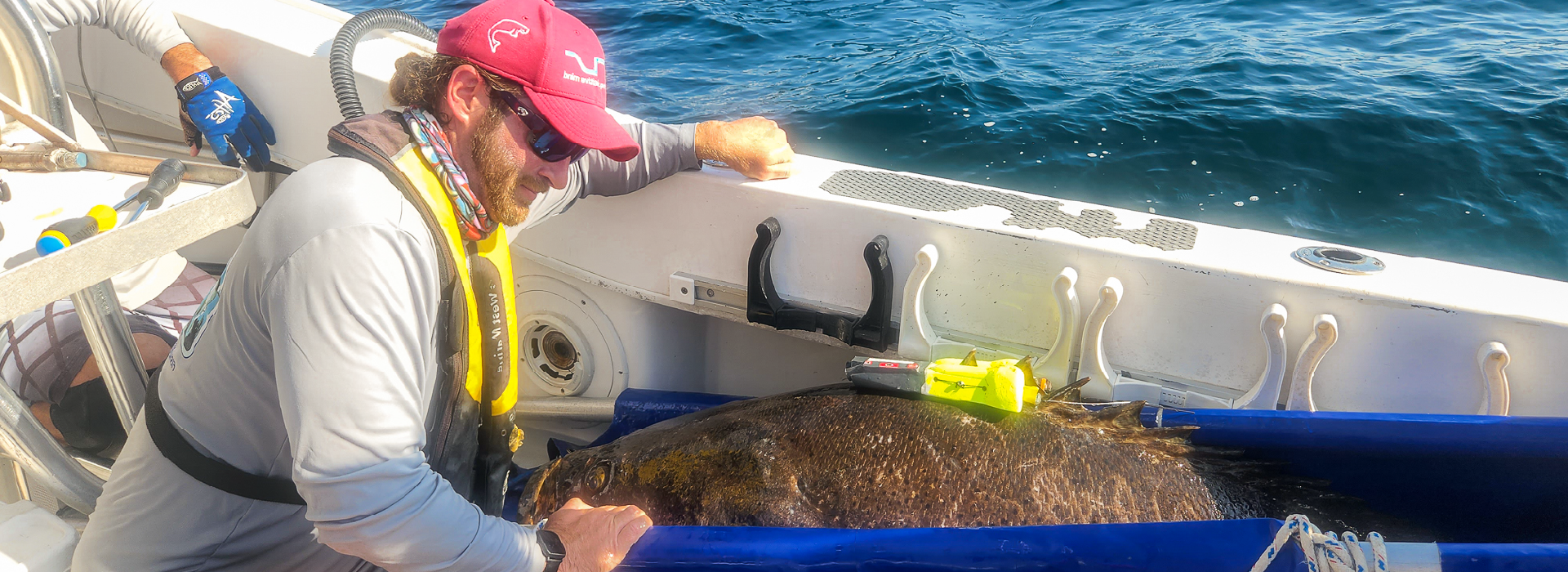Conservation Through Communication
FAU Doctoral Student Awarded $2,500 Scholarship
Clark Morgan, a doctoral student at the FAU Harbor Branch Oceanographic Institute, was recently awarded $2,500 for the Susan B. Young Memorial Scholarship Award from the Florida Outdoor Writers Association (FOWA), for his digital posts of his research.
Morgan, whose dissertation research focuses on the Atlantic goliath grouper (Epinephelus itajara) and their fisheries interactions, uses photography to raise awareness for conservation issues, including a recently published article in the Treasure Coast Almanac about photographing sharks. “I believe photography is one of mankind's most significant inventions, as it provides a means to share perspectives across a priceless platform: reality,” Morgan said.
“Goliath groupers are an enigmatic species at the heart of a current controversy,” he said, adding that they’ve been protected in Florida for the last three decades due to population declines from overexploitation beginning in the 1950’s. Several factors contributed to the historical demise of this species, which can reach up to eight feet in length and weigh more than 800 pounds, he said, “such as declining juvenile mangrove habitats due to coastal development, their status as a popular prized fishing target, and the species’ inherent susceptibility to overfishing because of its natural formations of large aggregations, both as residents and seasonal spawners.”
Now, however, the Florida Fish and Wildlife Conservation Commission has reopened the fishery with limited harvest of juveniles to open in March 2023, he said.
Morgan’s research will reveal more about the giant fishes' movement patterns using well-established tracking methods from study sites in the Gulf of Mexico and Treasure Coast, as well investigating how different release strategies by fishers impact the fish once they are released, such as how quickly they recover and swim off or even if they die. He hopes that by studying this, he can contribute understanding to reduce damage to the fish being brought up from deep water. Lastly, Morgan said, the final component of his dissertation research is based upon using remote technologies to address critical needs in managing this fish overall, such as determining their population numbers.
“I am dedicated to contributing to impactful science which promotes conservation and sustainability of marine populations in the face of anthropogenic impacts,” Morgan said. “I am interested in producing tangible change for habitat protection, commercial and recreational fisheries management.”
If you would like more information, please contact us at dorcommunications@kome-shibahara.com.
